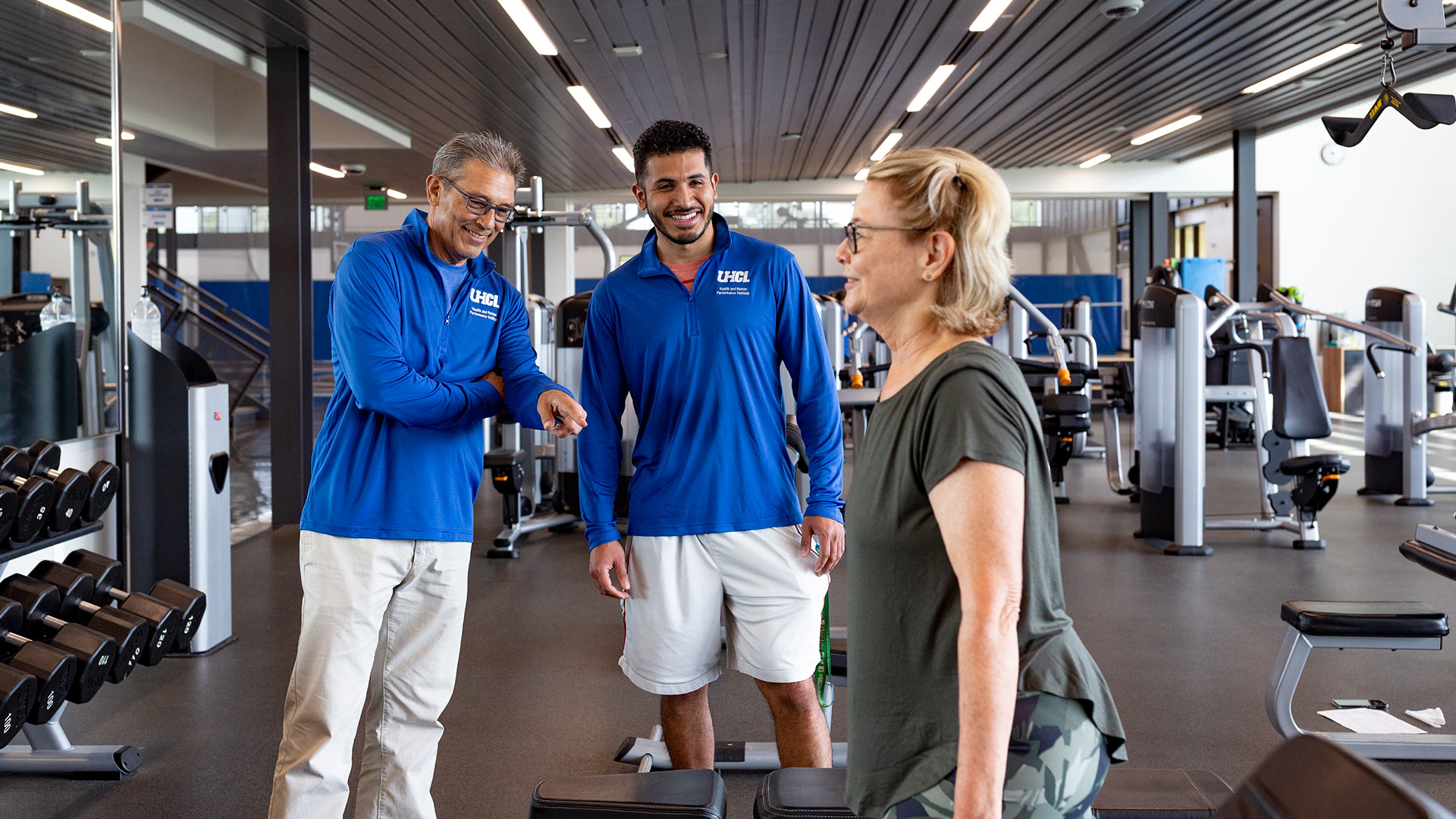- Future Students
- How to Apply
- Visit UHCL
- Admitted Students
- Tuition, Costs and Aid
- Degrees and Programs
- Contact Admissions
- Current Students
- Class Schedule
- Academic Calendar
- Advising
- Events
- Library
- Academic Resources and Support
- Student Services and Resources
- Alumni
- Lifetime Membership
- Alumni Events
- Update Your information
- Awards and Recognitions
- Give to UHCL
HHPI supports brain injury recovery through exercise, service
July 29, 2021 | UHCL Staff

Traumatic brain injury (TBI) is one of the leading causes of long-term disability in the United States, and it's the cause of death for over 160 Americans daily, according to the Centers for Disease Control and Prevention.
"This is why we need to talk about recovery, and the Health and Human Performance Institute program at this university can be a key feature in that recovery, because it's about exercise and service," said Joe Hazzard, the new clinical director of the Health and Human Performance Institute at University of Houston-Clear Lake.
Among the HHPI's missions is to serve the community by offering recovery support to those struggling with the after-effects of all types of brain trauma, whether it's a mild concussion or a more serious, potentially life-altering TBI.
"I have two visions for the work I'd like to do in the HHPI," Hazzard said. "Athletic trainers from the high school level up to professional sports are at least in some way assessing and referring concussions. Everyone at every level has a protocol. My plan is to talk about how to get athletes back to playing sports safely. The time of injury to the time getting back to play is paramount."
Research indicates that exercise is a critical factor to that plan. "Our HHPI program at UH-Clear Lake is perfect for people in that position," he said. "Everyone knows that exercise increases blood flow. The brain, like other parts of the body, will respond to increased blood flow. It promotes and contributes to recovery and reduces the lingering effects of concussion."
To that end, he said, he hopes to offer TBI injury recovery programming at HHPI. "I've learned that as the saying goes, if you've seen one concussion, you've seen exactly one concussion," he said. "No two are alike."
As he develops the TBI recovery program, he said he would like to reach another segment of the community besides athletes that needs support — victims of intimate partner violence.
"When we think about how concussions happen, we think about a direct blow to the head," he said. "It's a rapid turning of the head by force. With athletes, you can imagine two soccer players running at each other, or the head coming into contact with the ground or a wall."
In many cases, similar mechanisms occur among victims of intimate partner violence. "There's an uptick in research in concussions in females, gaining insight into the differences in recovery and the predisposition to head injuries," he said. "If we can reach into this community, we can offer this service and build a recovery program around that."
Hazzard said there is a significant percentage of resource personnel who serve the needs of these women who don't recognize the signs and symptoms of concussion. "If people are relying on these resources, and they're not educated in identifying those factors, then there's a disconnect. We have an obligation to educate those resources," he explained.
Having assessed and studied concussions his entire 31-year career in athletics and higher education, Hazzard said that he had created the Institute for Concussion Research and Services at Bloomburg University of Pennsylvania.
"I was involved in the most comprehensive nationwide longitudinal study of concussion that has ever been completed to date," he continued.
The study, funded by the NCAA-DOD Grand Alliance Care Consortium, is a prolific study involving multiple universities and military academies focusing on guiding policy to ensure safety and outcomes regarding concussion events.
"Concussions have been very much in the media over the last few years," he said. "Every mother was frightened about her child in sports. The media was driving a message about the dangers of participating in sports, but I refused to have this tried in the media because a lot of the information was inaccurate."
Through his involvement with that study, Hazzard said he learned much more about concussion and the tools he could utilize to help athletes recover. "I now have the opportunity to be directly involved in shaping students and practitioners for the future here at HHPI, remain involved with students who are embarking on this career while they learn," he said.
"If I can work to create this program, we will have done something for our community, we will have aligned expertise with delivery of services, and the single most important factor — we will have made every graduate of this program different," he said. "Our students will leave with a skill set far beyond that of other students with an exercise science degree."
Learn more information about UHCL's Health and Human Performance Institute online.






